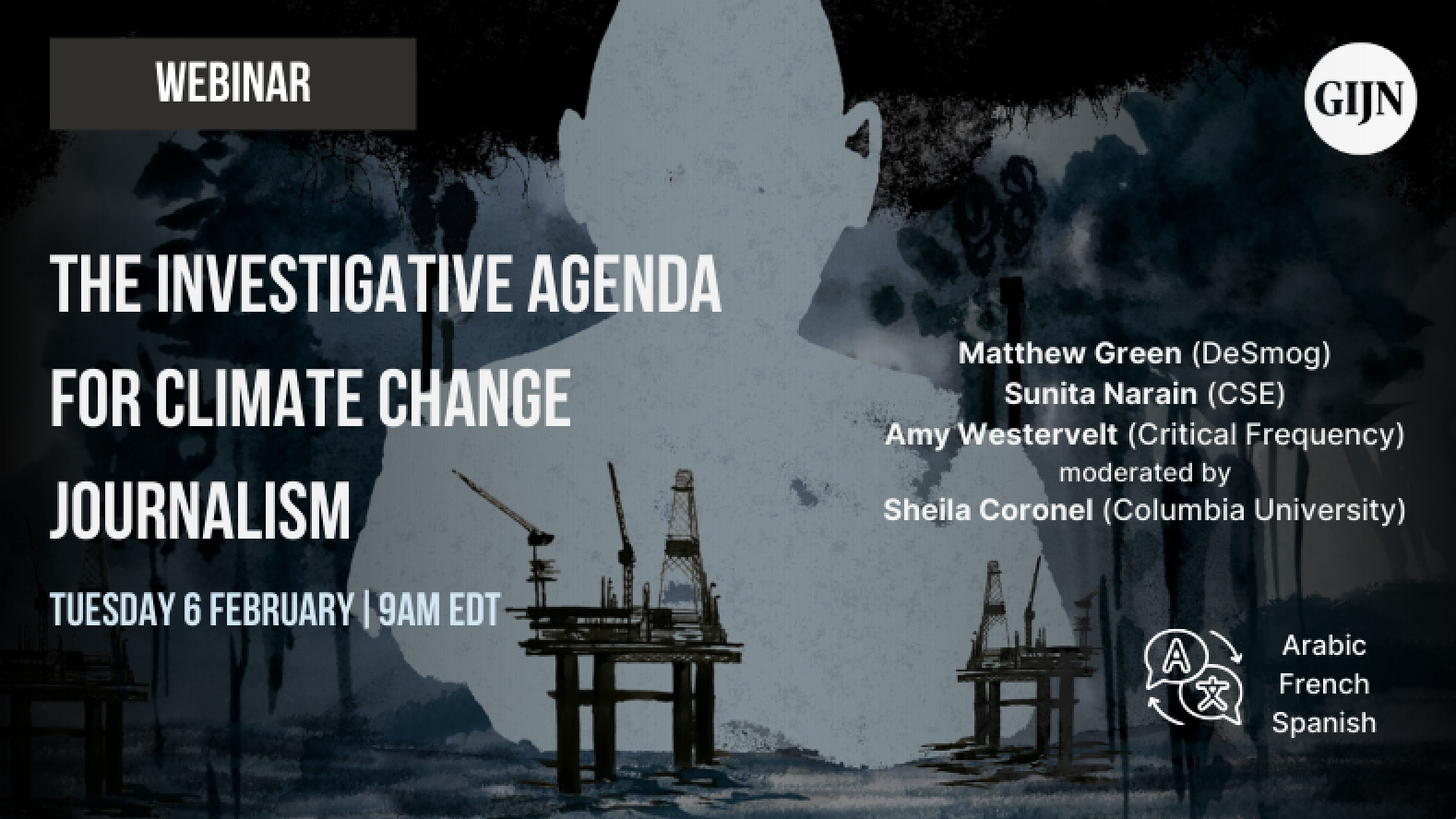
Climate change is global, but the causes are not. Although there has been progress on the development of affordable green energy, global greenhouse gas emissions are rising inexorably, according to one of the world’s leading authorities, the Intergovernmental Panel on Climate Change.
Fossil fuels – largely coal, oil, and gas – account for more than 75% of global greenhouse gasses.
Despite the climate crisis the world’s fossil fuel producers are planning massive expansions, according to this report. This growth is occurring even though many governments and corporations around the world have made net-zero and other climate change mitigation pledges. Thousands of journalists around the world are reporting on and investigating the impact of climate change, and multiple reporting networks have been established to further this work.
Sharing ideas, strategies, and techniques is critical at a time when the investigative agenda in this area is so diffuse and varied. GIJN has contributed to the debate about the investigative agenda for climate change journalism with the publication of a report on a one-day meeting of 80 climate change journalists and experts from 35 countries to discuss the role of investigative journalism in climate crisis reporting, convened at the GIJN’s most recent global conference.
In this panel, leading climate change journalists and experts will share perspectives on the top priorities for investigative journalism on climate change, including the fossil fuel industry, government policies, climate change finance, and the interface between climate and socio-economic forces.
Speakers:
– Matthew Green is global investigations editor at DeSmog.
– Sunita Narain is the director general of the Centre for Science and Environment (CSE).
– Amy Westervelt is an award-winning investigative journalist and executive producer of the independent podcast production company Critical Frequency.
NB Interpretation will be provided in Arabic, French, and Spanish.






